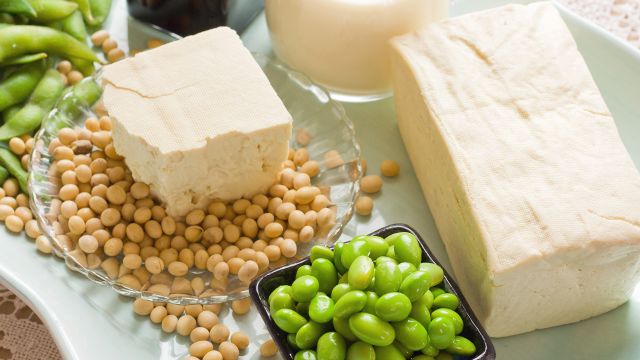If you pay attention to health claims on food labels, you may have been eating tofu and sipping soy milk because you thought these could help keep your heart healthy. After all, a long-standing claim authorized by the US Food and Drug Administration (FDA) linked soy protein with improved heart health.
So, why the fuss now about soy not being all it’s been cracked up to be? While the FDA considers voluminous evidence before granting a food producer or manufacturer authorization to make a health claim—it has only authorized 12 foods since 1990—the agency evaluates evidence on an ongoing basis.
Second thoughts about soy
But now, for the first time ever, it’s doing an about-face on a food that has had its stamp of approval. According to the FDA, subsequent studies into soy protein’s heart-health benefits have shown inconsistent findings about the ability of soy protein to lower heart-damaging, low-density lipoprotein (LDL) cholesterol since the authorization was granted 18 years ago.
Susan Mayne, PhD, director of the FDA’s Center for Food Safety and Applied Nutrition said in a statement that “while some evidence continues to suggest a relationship between soy protein and a reduced risk of heart disease—including evidence reviewed by the FDA when the claim was authorized—the totality of currently available scientific evidence calls into question the certainty of this relationship.”
So, what’s the verdict?
The American Heart Association (AHA) has been trying for years to get the FDA to revoke the soy health claim. In 2006, it highlighted in a letter to the FDA research findings showing that soy protein and soy isoflavones did not have strong cholesterol-lowering properties.
Analyzing studies comparing the cholesterol-lowering effects of soy protein to wheat, milk and animal protein, the report found that the average LDL or “bad” cholesterol-lowering benefit of soy was only about 3 percent, much smaller than expected. (Earlier research had pointed to an 8 percent reduction.) Two years later the AHA again asked the FDA to review the evidence.
And now it has. FDA spokesperson Deborah Kotz noted in an emailed response to questions that the agency’s review is “comprehensive and rigorous, requiring substantial time and effort … the FDA’s evaluation involved the review and analysis of a very large amount of scientific data contained within 709 publications.” She further noted that the agency has tentatively determined that the evidence doesn’t meet the standard required for authorized health claims and is proposing to revoke it.
Best foods for a healthy heart
If the FDA revokes the authorization (soy could still move a rung down the ladder to “qualified,” which requires less scientific evidence) is there still any health benefit to eating soy foods?
“Soy is still considered a healthy food,” says Michael Wahl, MD, an interventional cardiologist at Rose Medical Center in Denver, Colorado. “I think what the FDA is saying is that while soy does not by itself have a protective effect on the heart, it can still be part of a healthy diet.”
Since soy protein has all the essential amino acids, it’s a great protein source for vegetarians, Wahl adds. “Regardless of whether you follow a vegetarian diet or you just want to eat healthy, soy is an ideal food to swap in for proteins high in saturated fats.”
Skinless poultry, fish and legumes are also good choices, according to the AHA. For a complete heart-healthy diet, be sure to include a wide variety of fruits and vegetables, low-fat dairy products, whole grains, nuts and healthy vegetable oils such as olive, safflower and corn oil. Limit sugary drinks, sweets and red meat. For a complete eating plan, check out the DASH diet, which was created specifically to promote heart health, or the Mediterranean diet.






